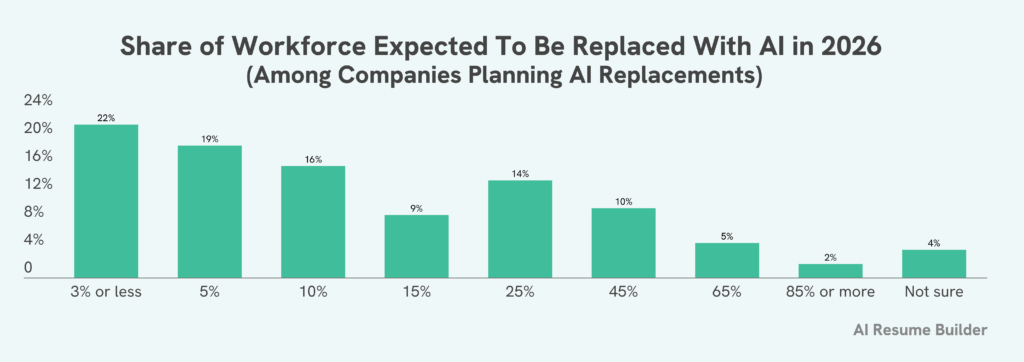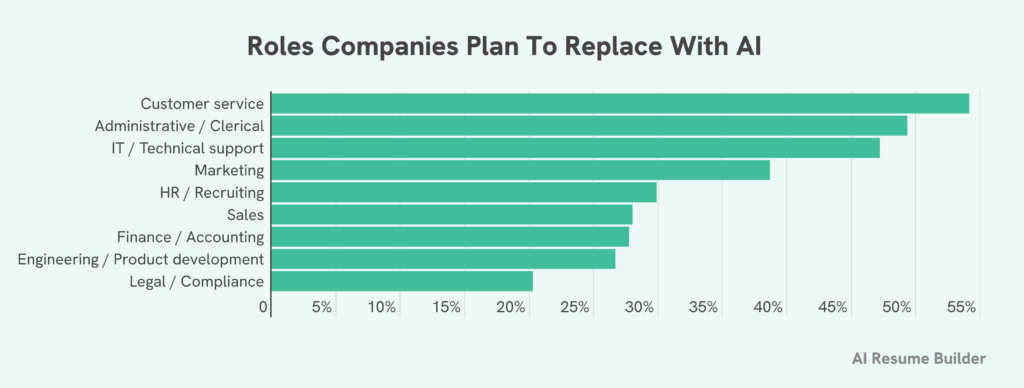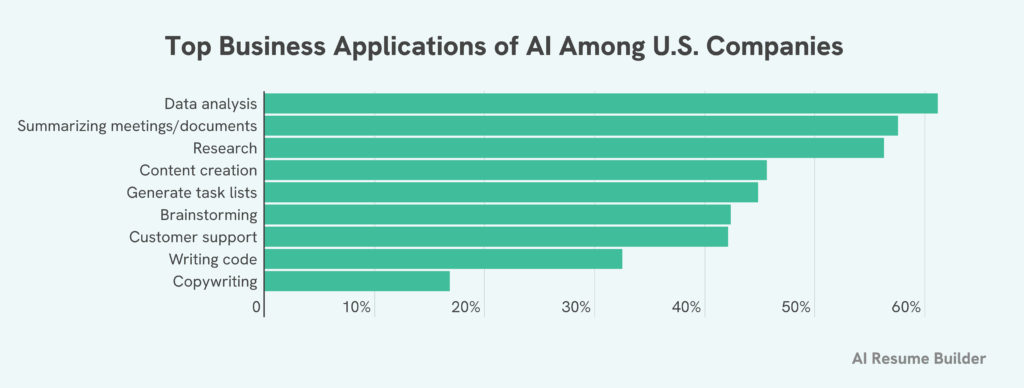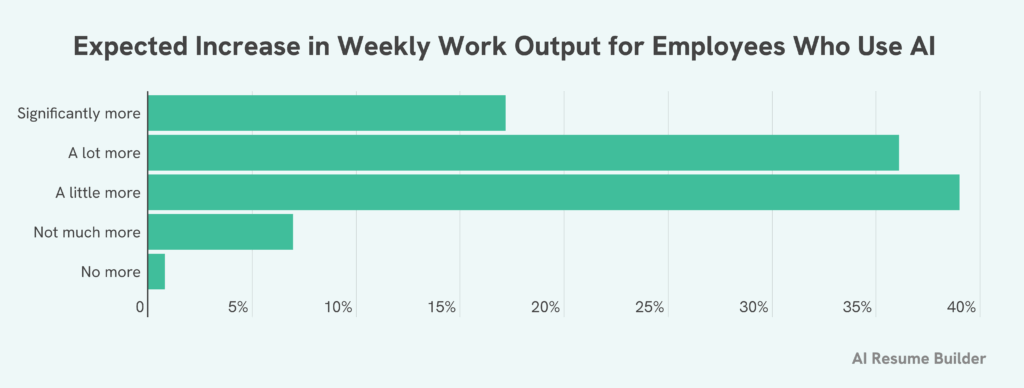AIResumeBuilder.com surveyed 1,250 business leaders to understand how companies plan to integrate AI into their workforce in 2026.
Key findings:
- 1 in 5 companies say AI replaced jobs in 2025
- 3 in 10 companies plan to replace employees with AI in 2026
- Administrative and customer service roles are most at risk of automation
- Workers with AI skills are less likely to be laid off
- Companies expect employees to leverage AI to significantly increase output
3 in 10 Companies Plan To Replace Workers With AI in 2026
One in five companies (21%) report that AI replaced specific roles in 2025. In 2026, nearly one-third of companies (30%) plan to replace workers with AI.
Among those anticipating AI-related layoffs, 59% say AI will replace 10% or more of their current workforce, and 10% of companies expect AI to replace 50% or more of their workforce.
The industries most likely to have AI-related layoffs include:
- Information technology
- Computer software
- Banking and financial services
- Energy, utilities, and oil and gas
- Accounting
- Telecommunications
- Consulting
- Human resources
- Manufacturing
- Retail

Administrative and Customer Service Roles Are Most at Risk
Companies report that customer service and support (54%), administrative or clerical (49%), and IT and technical support (47%) roles are the most likely to be replaced.
These functions overlap with the areas where AI is already most widely used, including data analysis (61%), summarizing meetings and documents (58%), and research (56%).

“Professionals should start by learning the AI tools most relevant to their field,” says Rachel Serwetz, career advisor at AIResumeBuilder.com. “For example, if AI is adopted for customer service, administrative, or IT work, there will still be a need for people to manage and oversee those tools. Research which technologies are becoming common in your industry and become an expert in how and when to use them.
“At the same time, ask yourself if this is an opportunity to clarify your career direction. If automation is reshaping your current role and you’re not passionate about it, consider pivoting to positions that feel more aligned and less at risk.”
2 in 3 Business Leaders Report Workers With AI Skills Have More Job Security
Two-thirds of business leaders (67%) reveal employees who have AI skills have more job security. For companies that plan to hire in 2026, the majority reveal that candidates with AI capabilities are more desirable.

More Than Half of Leaders Expect Employees to Leverage AI To Produce “A Lot” More Work
Most companies (86%) say AI is making their workforce more productive. When asked how much more work employees who use AI are expected to accomplish each week, 17% expect significantly more output, 36% say a lot more, and 39% a little more.

“Rather than thinking of doing more work with the help of AI, I’d think of it as working faster and smarter. AI can be great for quickly synthesizing research and developing strategies. In some cases, certain tools may allow you to produce a higher output depending on your role and deliverables. If your responsibilities don’t naturally lend themselves to greater output through AI, have that conversation with your manager so expectations remain clear and reasonable,” says Serwetz.
Methodology
This survey was conducted by AIResumeBuilder.com in 2025 and collected responses from 1,250 U.S. business leaders. Respondents were recruited based on demographic criteria, including employment status, income level, education level, age, and job title. The survey has a 95% confidence level and a margin of error of approximately ±3 percentage points.